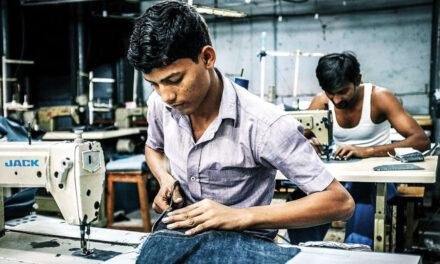 Underscoring the issues faced by the textile industry in respect of compliance with the Quality Control Orders, Tamil Nadu Chief Minister M K Stalin recently sought Union Textiles Minister Piyush Goyal’s intervention to protect the industry’s interests.
Underscoring the issues faced by the textile industry in respect of compliance with the Quality Control Orders, Tamil Nadu Chief Minister M K Stalin recently sought Union Textiles Minister Piyush Goyal’s intervention to protect the industry’s interests.
Writing to Goyal, Stalin referred to representations from the textile industry expressing reservations on mandatory certification through different Quality Control Orders (QCOs) by the Bureau of Indian Standards (BIS) in respect of various types of man-made fibres and viscose fibre. The QCOs issued by the Textiles Ministry vis-a-vis Viscose staple fibre give only one month for its implementation.
“Later, it was extended by two months to make it effective from 29 March 2023. Similarly, the Polyester Stable Fibre QCO has been made effective from 3 April 2023 by the Ministry of Chemicals and Fertilizers.”
In respect of Polyester Fully Drawn Yarn (FDY), Polyester Partially Oriented yarn (POY), Polyester Industrial Yarn (IDY), and 100 per cent Polyester Spun Grey and White Yarn, QCOs would come into effect from 3 July 2023.
“As you are aware, fashion cycles are planned over six months in advance, and orders to source the raw material are placed accordingly. Therefore, these implementation deadlines may hamper several ongoing processes.”
As regards Viscose and Polyester yarns, “innovation of novel and sustainable fibres possessing unique characteristics is possible” due to continuous research and development. Hence, “general QCOs” may not be applicable to such fibres.
“In the case of Viscose fibre, though the BIS standard is available for typical Viscose fibre, there is no BIS standard specifically designed for bamboo Viscose fibre which is in great demand in the export market because of its anti-bacterial and anti-microbial properties.”
The industry has also represented that many applications from foreign suppliers are pending inspection and approval by BIS. Even if these suppliers conform to the QCOs norms, importing such fibres can only be effected once the BIS officials complete all the formalities and approve applications.
“Under the circumstances, many textile fabric and garment manufacturers who have placed orders for such fibres and whose shipment is in transit will likely suffer substantial business losses.”
Though implementing QCOs would improve quality and protect environment, the industry’s interest must also be protected by providing sufficient time to implement such quality norms.
“It is pertinent to note that MSME units generally dominate the textile sector. The manufacturers have been mandated to establish testing infrastructure to obtain BIS certification, which is cost intensive and not viable for MSME units.”
The Chief Minister urged the Union Minister to issue necessary instructions to officials to “insist on the QCOs” for importing Viscose and Polyester fibre only after the BIS disposes of all pending applications filed by importers seeking BIS certification to comply with QCOs. Stalin also requested “exemption for filament yarn and artificial fibres, including bamboo fibres not manufactured in India from QCO imposed by the government.






















